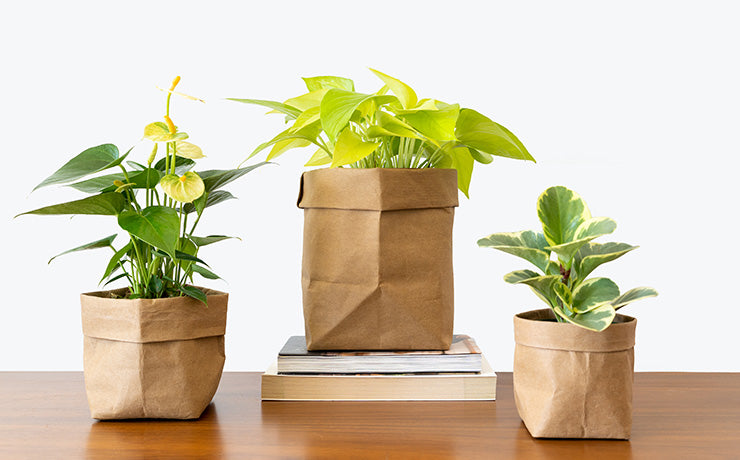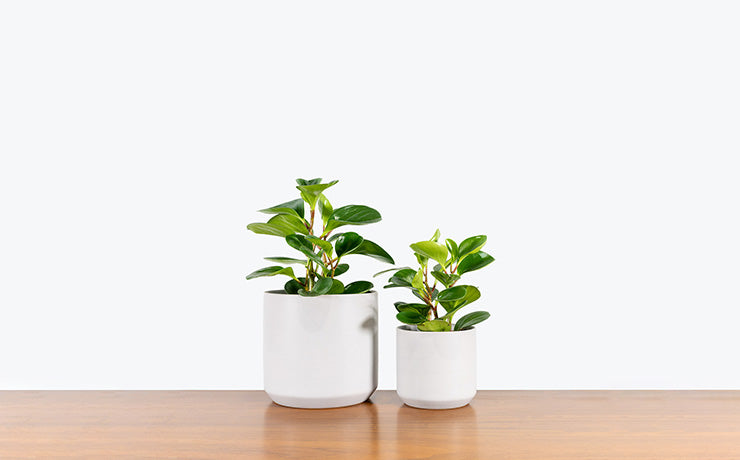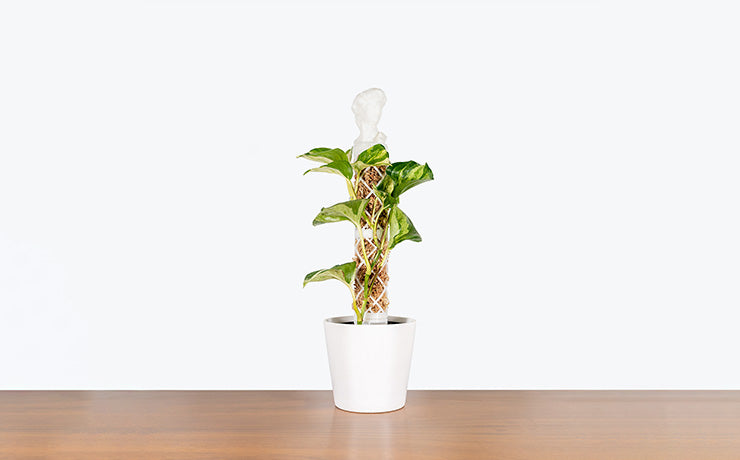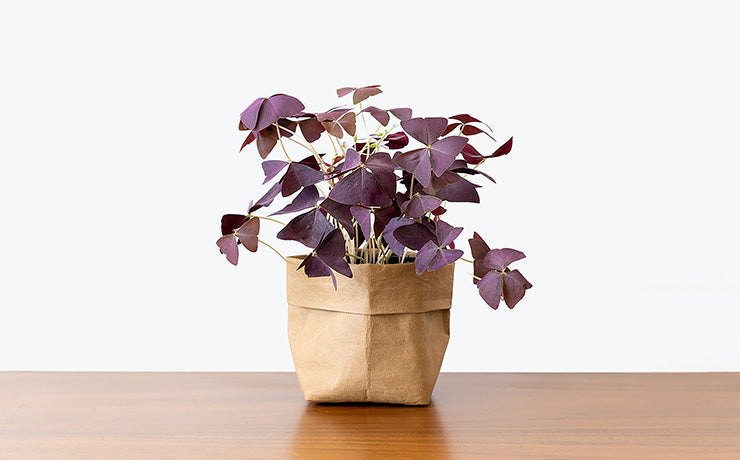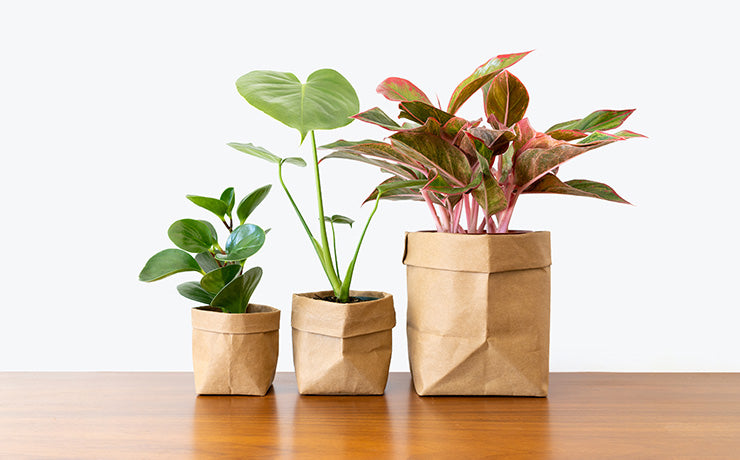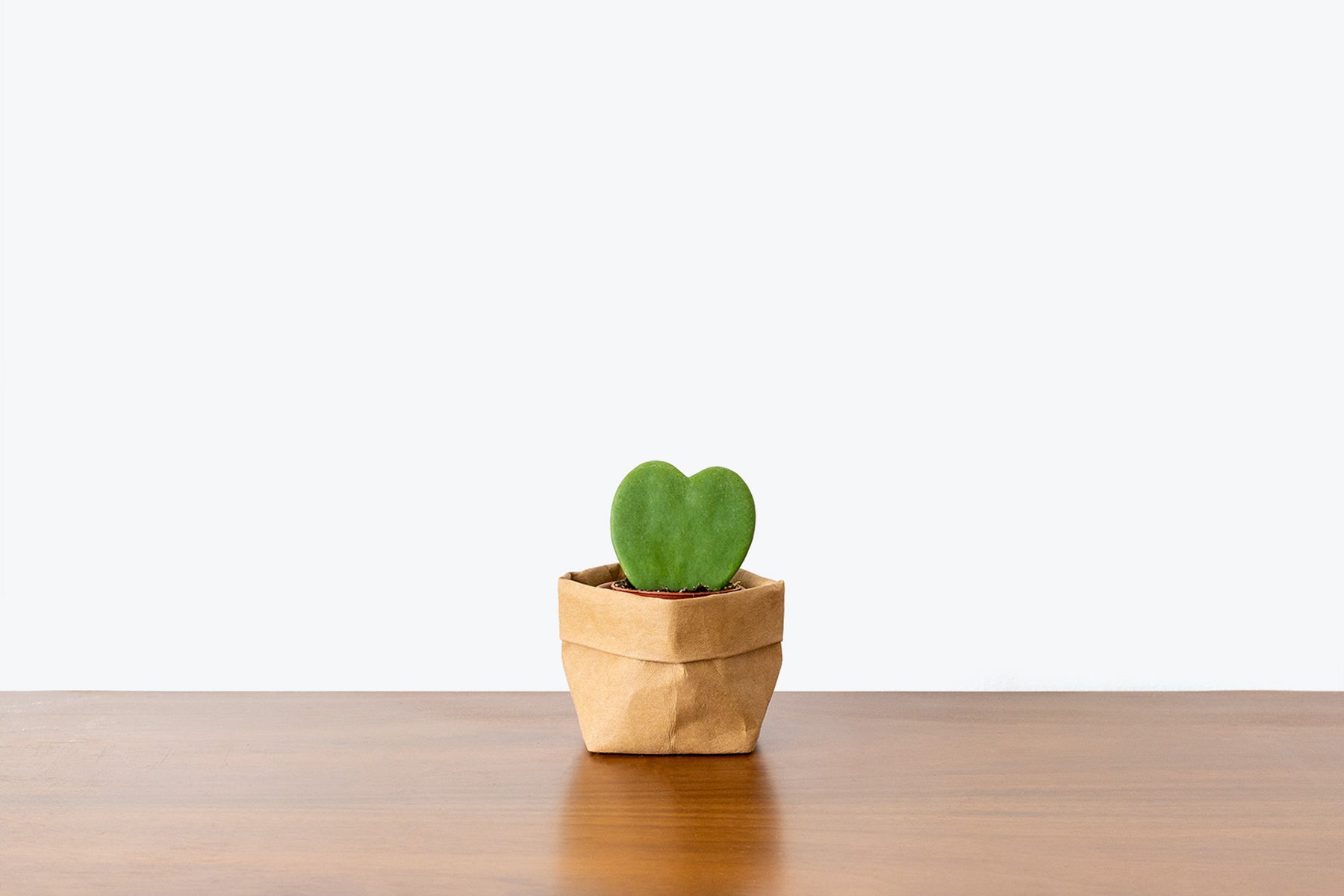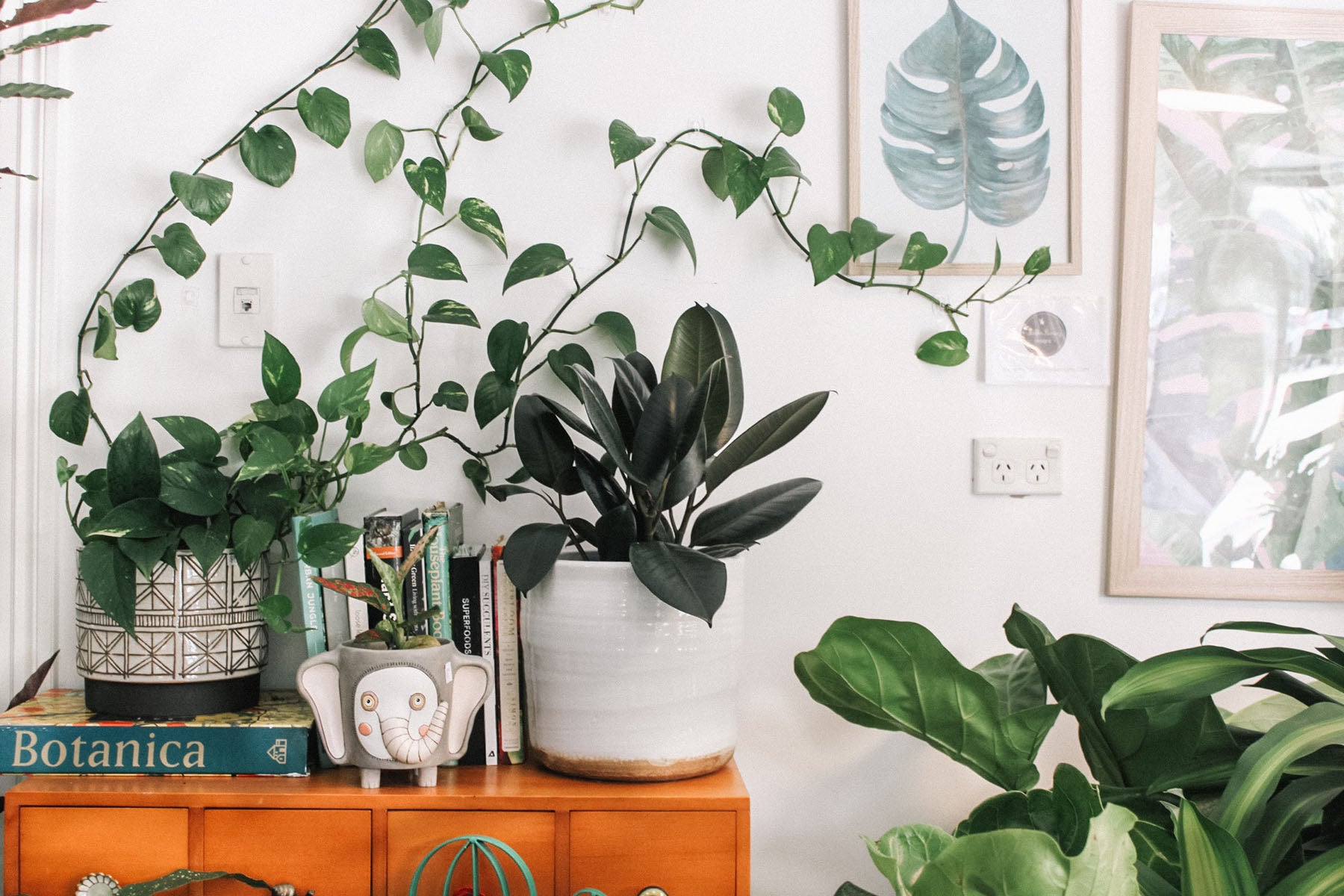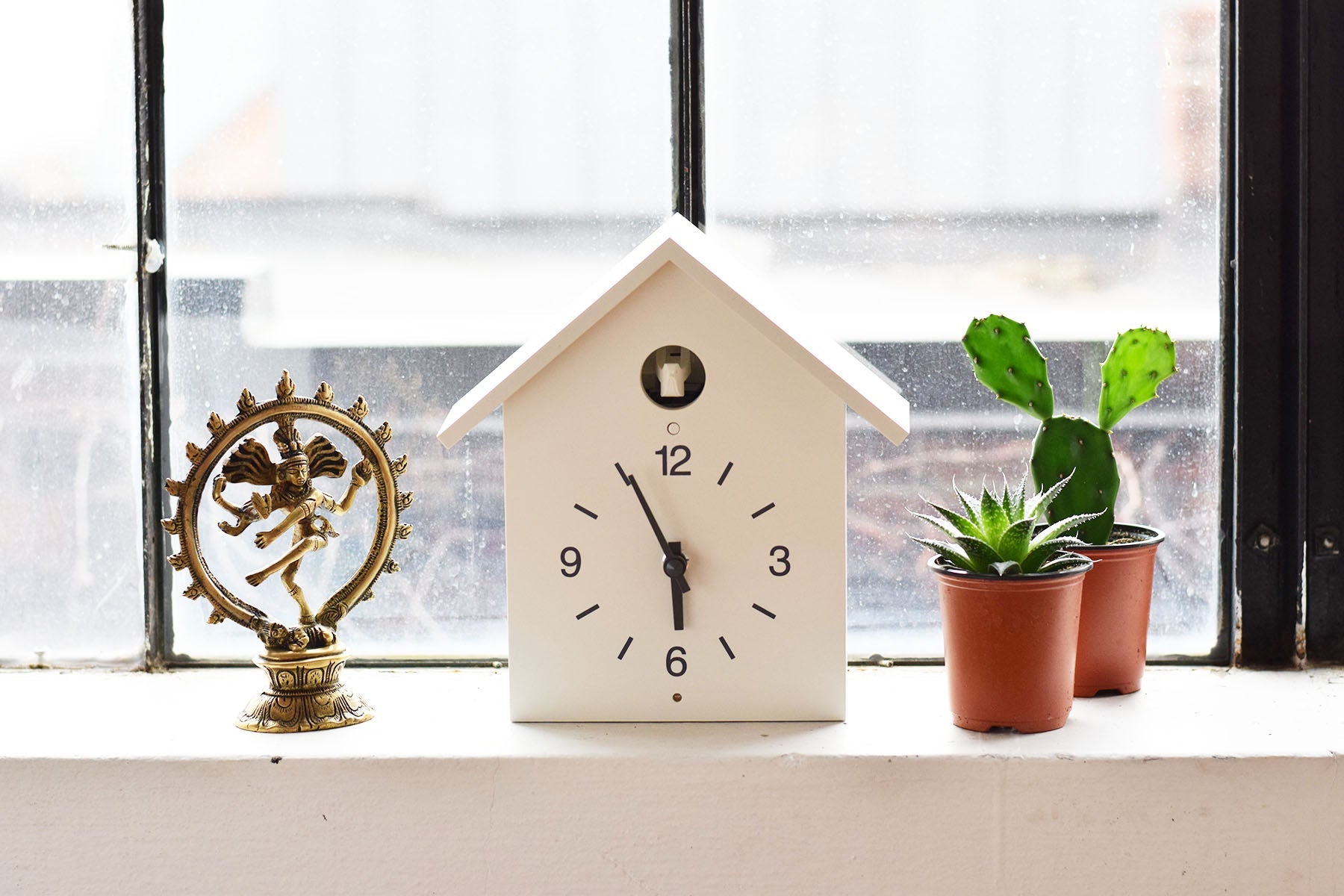
Lessons We Learn from Our Plants: Patience in Growth
Owning houseplants can be an incredibly rewarding pastime, but it does require some element of patience from us. Plants force us to slow down, and pay attention to our surroundings, enjoying the peace and joy of a moment rather than rushing through our day-to-day lives. How do they do this? Well, we can't rush Mother Nature, no matter how much we try. We can assist her in our own tiny ways, by investing in grow lights for additional lighting, by using humidifiers to create a more natural climate indoors for our tropical plants, or by using rooting agents when we dabble in propagations. No matter what, despite all of our efforts, we cannot speed up the natural process of growth, but rather enjoy it as it comes.
As a matter of fact, this entire premise is what JOMO Studio is built on; life is all about the joy of missing out, the joy of living in the moment rather than wishing or hoping for something else. Just like personal growth, plant growth takes time, it does not happen overnight. Caring for plants allows us to take joy in the process, paying attention to their needs, then watching them flourish into something even more magical. In the end, you can know that you helped in some small way.
Growing houseplants should be a relatively stress-free hobby, something for you to do in your moments of quiet, browsing through your plants and doing any necessary care steps as needed, focusing on the now. The correlation between caring for ourselves and caring for our plants is clear, when we aren't caring for ourselves, we probably aren't caring for our plants and every living being needs some element of care in order to thrive. Time spent in green spaces can improve our mood, reduce the negative effects of stress, and enhance our overall well-being, so why not have houseplants surrounding us?
👨🌾
Nowadays, it has become increasingly popular to see plant parents with huge collections of houseplants, more than it used to be. If that's you, caring for plants may not be such an easy feat, as anything in excess can become overwhelming. The good news is that the more plants you have, the higher your chances are of seeing new growth each day!
Despite all of the benefits of houseplants, it is important to realize that we are not in complete control of their lives and to be patient. New growth takes time, as well as specific conditions, especially if you are wanting mature growth of a plant since the juvenile growth of houseplants can be quite different. Take Monstera Deliciosa's, for example, they are incredibly popular due to their large, majestic, split leaves, but they don't have those leaves initially! As a young plant matures and is kept in proper conditions, it will develop that well-known foliage over time, but not at the snap of your fingers.
With that being said, there are definitely aspects of plant care that you can focus on, in order to provide your plants with their best chance at living long, healthy, and happy lives. We may not be the thing causing them to grow, but we can certainly help them reach their full potential, with a little bit of effort. In the rest of this article, we will go over plant growth, factors that affect the rate of growth, and all the things that you can do as a plant parent to set your plants up for success.
Factors that Affect the Rate of Growth
Whether you are a new plant parent or an experienced one, new growth is always exciting, and that's a fact. There is not much more rewarding than seeing a plant live a happy life under your care. Ok, there may be plenty of things more rewarding than that but it's definitely up there! Oftentimes, when we think of something exciting that is coming, it is really hard to be patient, but that is necessary when it comes to owning plants. There are so many factors that affect the rate of growth that are out of our control, but for each factor, we will go over what you CAN do as well.
1. Lighting:
Lighting is the most important aspect of plant care to understand since everything about plant growth indoors directly relates to how much light is being received. If plants don't receive the light they need, they won't receive the energy they need to put into growing, and instead will get rid of what they can't handle in order to survive (i.e. leaf loss), produce thinner, smaller foliage, or will slowly die.
💡
If you wish to provide higher light levels for your plants, try to supplement with grow lights!
We have general guidelines for all of our plants on their product pages here on our website, but, usually, the more light a plant receives, the better. Now, this doesn't mean direct sunlight, as that can scorch delicate tropical leaves, but the larger the view of the sky from where the plant sits, the better. Our Indoor Lighting Guide goes much further in-depth into this concept, just remember that it is important a plant is receiving the light that it needs to grow.
2. Dormancy:
The speed of plant growth greatly depends on the time of year. Why does this matter? Well, since the days are much shorter in the winter, and generally cloudier due to weather conditions here in the Northern Hemisphere, light levels are much lower than during the spring and summer months.
To put it very simply, less light means less growth! When the seasons change, plant care should also be adjusted, because plants generally go through a period where growth slows dramatically in the fall and winter months, sometimes going completely dormant. On the other hand, lots of houseplants can explode with growth during the warmer months, so keep this on your mind as the seasons roll around.
3. Fertilizer:
Although it is not completely necessary to fertilize your plants, we definitely recommend that you do. This doesn't only encourage growth, but it also encourages healthy plants in the long run. Houseplants don't have a regular source of nutrients like plants that grow in the ground do, so it is important to supplement that by fertilizing them.
🌿
Every time you water your plants, nutrients leach out of the soil, and even if you didn't water your plants, the plant itself would take up the nutrients. Since they are in pots and not in the ground with an unlimited supply, there is only so much time until those nutrients will have all been used up.
Depending on the variety of plants, there are plenty of fertilizer options out there so just look up which plant needs what. When in doubt, a balanced fertilizer will do the trick.
4. Watering:
The amount of water your plants need depends on the individual plant's requirements as well as how much light they are receiving: generally, more light = more water and vice versa. The appropriate amount of water is important to support healthy plant growth during all seasons.
🚰
In the winter, surface soil can dry out more quickly due to the drier air indoors, but that's not necessarily a good indicator that the plant needs water. Push your finger into the soil to determine the moisture levels of the soil and water based on the plant's needs.
Remember that different plants have different needs, so Snake Plants, ZZ Plants, Succulents, and some other plants want their soil to dry out in between waterings, and too much can be detrimental to their health. That being said, not enough water for other plants can also be detrimental to their health. Check out our plant care guides, as well as our plant product pages, for more specific care notes!
5. Consistency of Care:
Finally, being consistent in the care of your plants is essential in helping them produce even, healthy new growth. If we allow the soil to go too dry, keep it too wet, don't provide enough light, provide too much light, fertilize too much, don't fertilize enough, or don't adjust the conditions as each plant needs, we aren't setting up our plants for success.
Although it might sound like our plants are very picky, they really aren't that complex. Caring for plants shouldn't be stress-inducing, we simply recommend making sure you have done your research before buying a plant to be sure that the environment you are giving it will provide for its needs. It is important to provide them with the correct care, mainly for their watering and lighting needs, in order to encourage the quickest, healthiest, happiest growth!
Maturity of Growth
As we mentioned above, all plants start out producing juvenile growth, only producing mature growth once they have reached maturity and as long as all of their needs are met. Mature growth doesn't occur overnight, but it doesn't mean anything is wrong if it isn't happening just yet. This takes patience and certain conditions, a specific one would be growing your plant on some sort of support, as they may not grow their fully mature leaves if they don't have any. Now, that being said, a plant can grow just fine without any support, its leaves remaining smaller and in a more juvenile state, but this doesn't mean it is in poor health.
💡
If your plant is a vining aroid, such as a Monstera Deliciosa, Philodendron Pink Princess, Philodendron Burle Marx, Rhaphidophora Tetrasperma, or any other variety that climbs, we would advise growing your plant on a moss pole. Over time, your plant will grow large leaves that produce in the mature form, which can mean plenty of intricate shapes and fenestrations, depending on the species.
Give yourself and your plant some time, making sure it is in the right amount of light, not too much not too little, and that you are watering accordingly. Introduce a grow light if you can't increase the light levels via windows, boost the humidity around your plant by investing in a humidifier or mister and prune off any old growth that is scarred, discoloured, or browning, allowing the plant to allocate its energy resources elsewhere (don't go too crazy with this step though). These are the few things we can control to assist our plants further, then watch them do their thing.
Final Notes
It can't be said enough, all of this growth comes with time and it cannot be forced. We can use additional materials, such as grow lights, heating pads, applicable fertilizers, pruning, and any other tips and tricks to encourage growth, but patience will always be necessary. In the end, owning plants should be a calming process, allowing you to take a moment in your busy day to focus on something genuinely amazing, watching a living being grow under your care. We are not in control of everything, but there are certain things we can control. As long as you are providing the right conditions, your plant will thank you over time with beautiful new growth.
